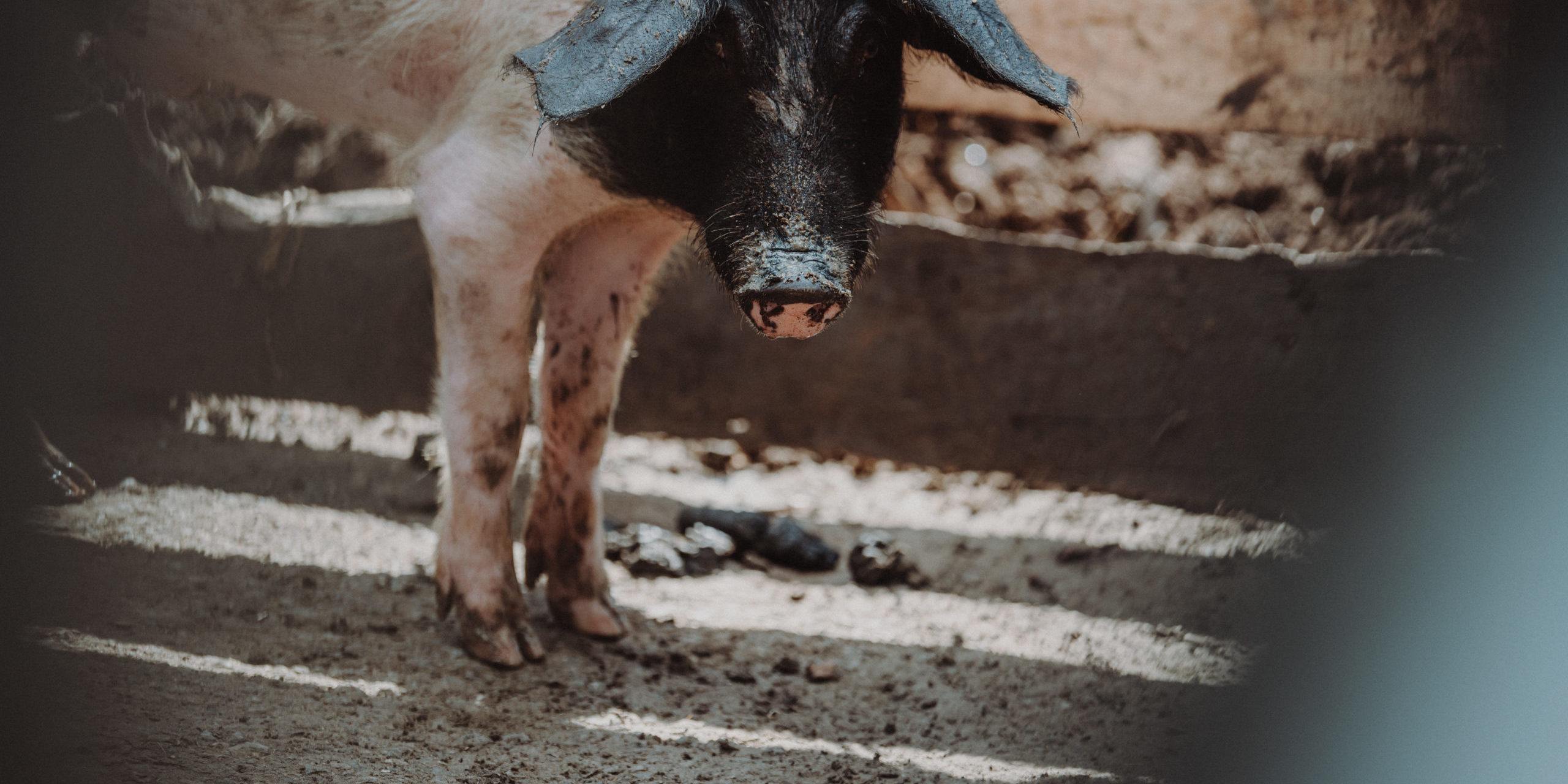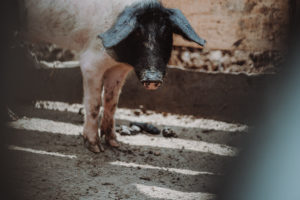Bosco Tuli is a social innovator working near Lira, Uganda in the wake of Northern Uganda’s civil war. His goal is to give the youth of Uganda an opportunity to rebuild their future through education and job skills training.
Northern Uganda is recovering from over two decades of armed conflict, which resulted in the displacement of almost the entire population of nearby regions. Bosco and his wife Edith realized that to give youth the opportunity to rebuild their future, they needed a twofold strategy: Open a primary school for youth in Lira, Uganda, and build career opportunities for students through business apprenticeship programs. These programs will then re-invest in the sustainability of the school, continuing the cycle of acceleration.
You may remember our Giving Tuesday campaign several years ago that focused on launching the first of these business apprenticeship programs, a pig project. Through the project, Bosco and Edith are giving older youth an opportunity to learn agricultural skills and begin a path towards financial sustainability. They seek to play a positive role model for their family and the community by encouraging the development of small and medium-scale family enterprises as an effective way of poverty reduction and community development among the most vulnerable populations of Northern Uganda.
Since they launched the pig project two years ago, Bosco has put immense time and effort into incorporating new, innovative technology solutions. One of these solutions, Fermented Bed Technology, has been incredibly successful in improving immunity and increasing the survival rate. This month, we asked Bosco to give us an update on the pig project and all that he has learned.
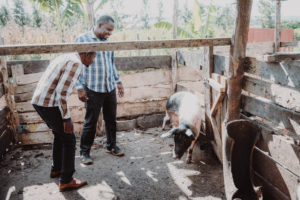 “I first learnt about fermented bed technology…in South Sudan, I think in 2013,” said Bosco. “I was very intrigued with the technology especially since the sty had no bad odor that is characteristically associated with pigs. I asked many questions and found out that the technician was one of our staff’s children, who did that as part of his university research paper.”
“I first learnt about fermented bed technology…in South Sudan, I think in 2013,” said Bosco. “I was very intrigued with the technology especially since the sty had no bad odor that is characteristically associated with pigs. I asked many questions and found out that the technician was one of our staff’s children, who did that as part of his university research paper.”
“After coming back, I had an opportunity to meet with him and learn some basics from him theoretically. When I relocated from Arua to Lira, I did a preliminary survey of the means of livelihood of the people in Elwa and the surrounding village. I came to realize that they were mostly engaged and/or interested in pig production, but its full potential was not being realized as a result of the following challenges: reduced land for farming; poor breeds; traditional feeding and husbandry practices; limited technical knowledge leading to in-breeding and slow growth rates; high worm infestation, and social conflicts between pig farmers and crop communities. I realized that almost 80% of these challenges could be addressed by Fermented Bed Technology (FBT).”
“While I was starting the piggery project, I had to consult the only one person who I knew did it successfully, but he was asking for more money than I had in my budget. So, we started with my two boys and I had to rely on the notes I had”.
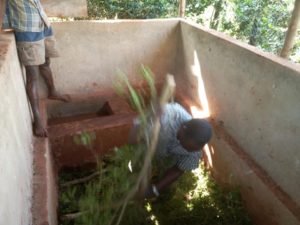 Using these notes and his memory of seeing the technology in use, Bosco began purchasing the materials needed and cultivating the microbe-friendly water solution they would need to start the process.
Using these notes and his memory of seeing the technology in use, Bosco began purchasing the materials needed and cultivating the microbe-friendly water solution they would need to start the process.
“Bedding material consists of dry grass, maize or rice straws or small tree branches laid firmly on the floor. You then add fine sawdust, 100Kgs of loam soil, lime, and table salt.” Combined with the water solution, this creates an environment where healthy bacteria thrives over the unhealthy, reducing smell and disease.
“FBT offers many benefits,” says Bosco, “but the core ones are:
- FBT is highly environment friendly. It enables you to rear pigs in a clean environment where there are no flies and bad smell. It is a simple and efficient way to [create] rich compost for improving soil fertility.
- It is cheap and effective way to rear clean and healthy pigs that give high quality pork. The bedding creates an immense amount of heat (approximately 600C) as the plant materials breakdown and decompose. This helps the pigs stay warm during cold weather and minimizes accumulation of fatty layer below the skin which normally undermines pork quality.
- It also allows for natural behaviors such as rooting by pigs; it helps prevent the outbreak of disease, improves pigs immunity; reduces urine and manure disposal, minimizes frequent cleaning and the need for disinfection. Further, the construction of the housing structure can be cheap and low technology.”
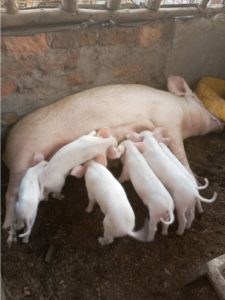
In the past two years, Bosco and his small team have seen good results.“The pigs I had exhibited a fast growth rate compared to pigs in the free range and conventional cement floor housing units,” he says. “[Another benefit was the] disease and conflict-free environment created…pigs in my neighborhood died in numbers recently due to a disease outbreak, while mine were not attacked at all.”
“Overall, I started with 12 Pigs, and sold 8 of them, but now I have 27 pigs including 8 sows, 1 boar, and 17 piglets.”
Bosco continues to build his vision of training others through this technology, and providing youth and other community members with greater opportunity.
“As far as training goes,” he says, “I can say I have trained at least the two boys working with me fully. They can establish and manage a FBT unit without any problem. Currently I am beginning to introduce them into medical care of the pigs which is one of the most expensive aspects in the project. I am also hoping to slowly help them start something of their own and grow.”
Bosco has continued to welcome community members and leaders from other projects in Uganda, who visit the piggery to see it for themselves, just as he was fascinated back in 2013. He is eager to share what he has learned and help others gain the confidence to try this technology for themselves.
“Deep fermented bed technology is the hope for an average farmer and joy of every hog,” he exclaims. “We are so blessed to have implemented this idea and for those who have helped us to start.”


